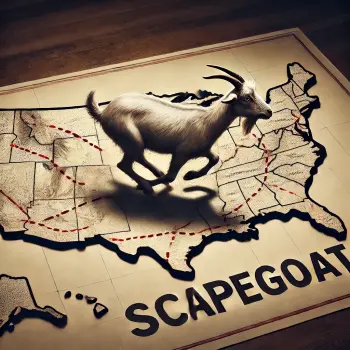Lectionary Reflections
Sunday, October 9, 2011
Exodus 32:1-14
Exodus 32 is truly one of the great story chapters in our Bible. The so-called "story of the golden calf" is far more than that as this brief look hopes to show. Perhaps the first thing to note is that no preacher of this material can stop at verse 14. That would be like reading only the first half of a rich novel. In fact, the entire story, begun at chapter 32, does not really end until chapter 34. But we must make some painful choices if we are not to go on all day.
The skill of the writer of this material is unmatched in the ancient world. The details of the text offer a wonderful series of human and divine insights, all of which could serve as basis for a boatload of sermons. Still, one must choose! Hence, this reading will focus on the leadership of Moses and the failures of Aaron to lead. We will be looking for a model of genuine leadership in this chapter.
In Ex. 24 Moses announces to Aaron (his brother in some places in the tradition though not in others) that he, Moses, is about to ascend the spooky mountain of Sinai to converse with YHWH. He deputizes Aaron to deal with any problems should any arise while he is away. Moses no sooner disappears into the mists of the mountain, when a problem arises. The people at the mountain's base, upon seeing Moses vanish, immediately "mob against" (the more appropriate reading of the verb in Ex. 32:1) Aaron and start shouting demands. "Come on! Make us gods who will go before us; as for this Moses, the man who brought us up out of the land of Egypt, we do not know what is with him!" That latter translation may sound like 21st century slang, but it in fact is one way the ancient text can be read.
Now we might expect Aaron to respond to the enraged and anxious people's request in the way that a deputized leader ought respond. Have they not just broken the first the Ten Commandments, the one that reads, "I, YHWH, am your God who brought you up from the land of Egypt, out of the house of slavery," by claiming that it was Moses "who brought them out of Egypt" and by demanding some new gods to replace YHWH. Astonishingly, Aaron proceeds to break the 2nd Commandment, joining in the fun, I suppose, of rule shattering.
He demands their gold, that gold given to them by the Egyptians as they marched out of Egypt, and carefully shapes a molten calf. The people take one look at the shiny thing and announce, "These are your gods, O Israel, who brought you up from the land of Egypt" (Ex. 32:4). (I cannot resist sharing with you one of Frederick Buechner's great lines about this scene. He says, and I paraphrase slightly, that the people of Israel know what we all know; a god in the hand is worth two in the bush! Go on; you can use that sometime, I am sure—but give credit!)
Aaron, perhaps seeing the chaos he has unleashed, tries to save things by proclaiming, "Let there be a feast to YHWH tomorrow! (Ex. 32:5). Dutifully, the people get up early in the morning and perform the rudiments of Hebrew worship, offering both whole burnt and peace offerings to YHWH. And then in a time-honored way, they partake of dinner on the grounds, though I doubt they had fried chicken and potato salad. But what they then do is not for delicate ears.
"And the people sat down to eat and drink, and rose up to revel" (Ex. 32:7). Or so reads the NRSV. The older RSV read the last verb "play." Neither quite gets to the meaning, I think. The word comes from the Hebrew root for "laughter," most famously in the child born to the prune-faced Abraham and Sarah, whom we know as Isaac. In that Genesis story, the laughter represented by the miraculous child is surely joy and gladness. However, in another Genesis story, this word presents a very different flavor. In Gen 26, that same Isaac, now grown up and married to Rebekah, pays a visit to the land of Gerar and its king Abimelech. He, like his father before him, lies about his wife to the king, claiming that she is really his sister. The king in all innocence adds the comely Rebekah to his harem. But one day the king is gazing out of his window and spies Isaac and Rebekah "fondling" one another, as the NRSV has it (Gen. 26:8). That verb is the same verb used to describe the actions of the people after they have worshipped and had their post-worship lunch at the base of Sinai. "Play" clearly is not right, and "revel" is a bit better, but what they are doing with one another ought perhaps not be further defined! Fondling on steroids? I leave the picture to you and your own mind.





